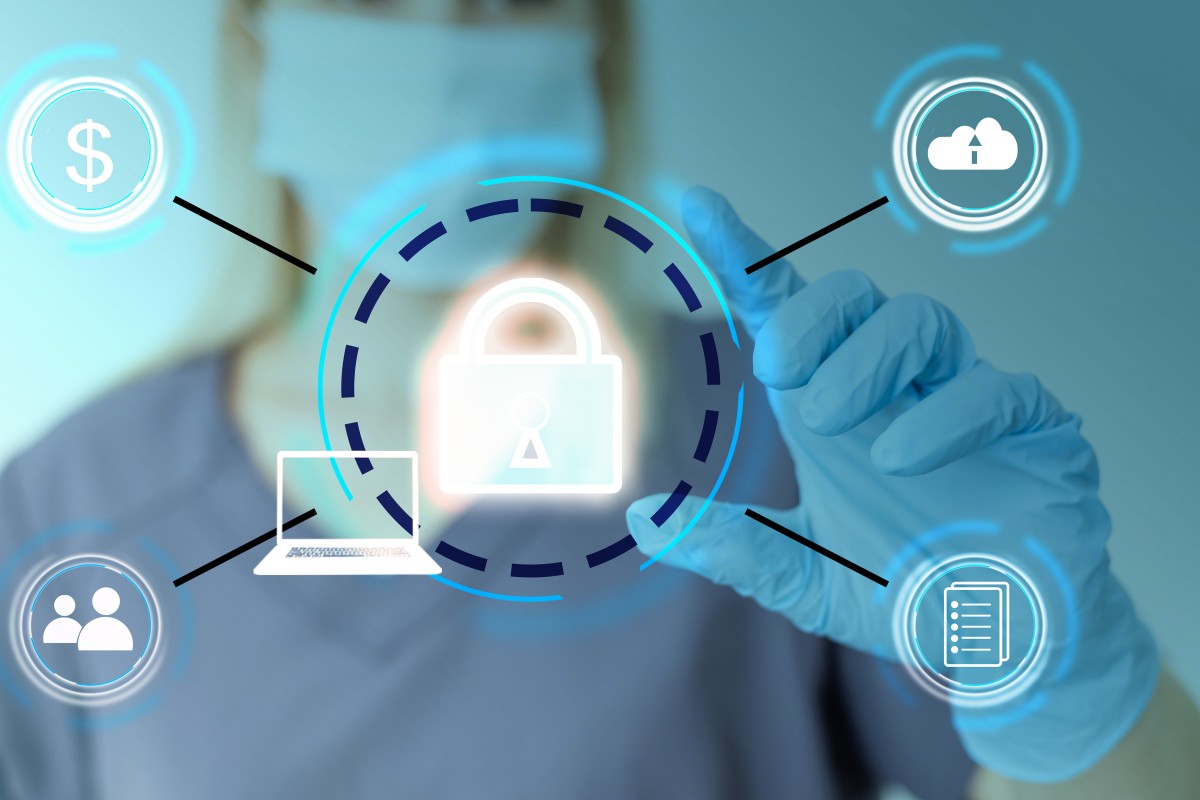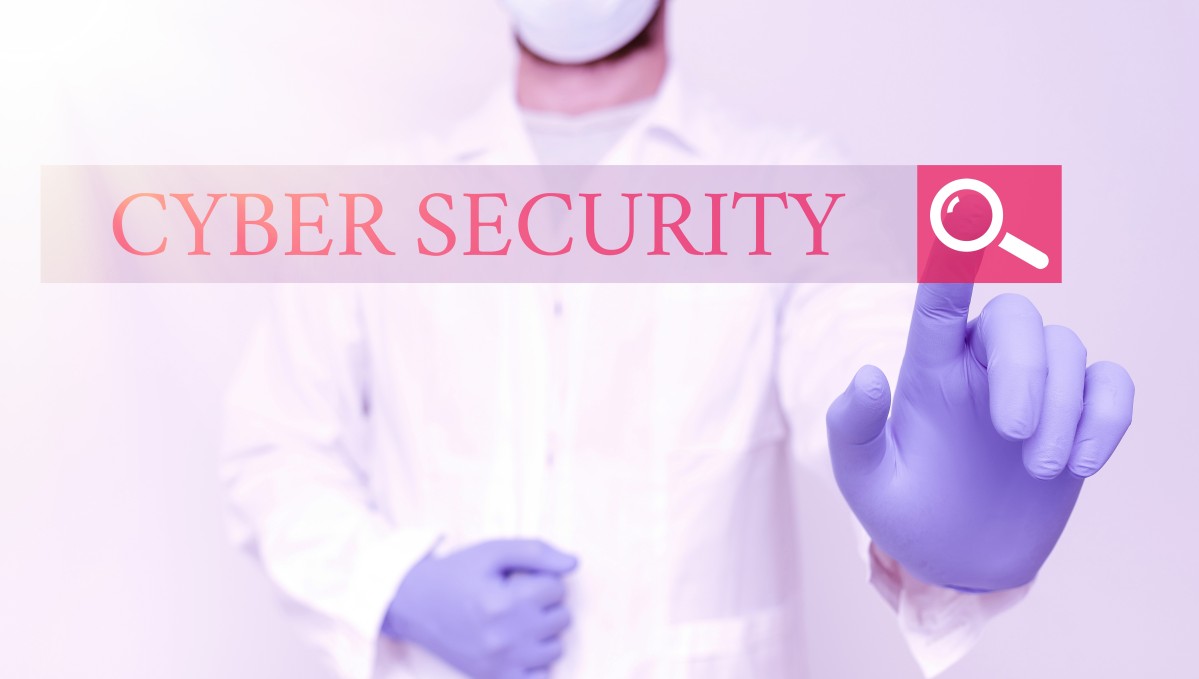Using Patient Education Videos to Support Preventive Care Strategies
As a healthcare provider, you know prevention saves lives. From routine screenings and lifestyle counseling to vaccinations and early detection,...
7 min read
Robert McDermott Jul 7, 2022 11:00:00 AM
 In 2021, medical and dental practices were subjected to all kinds of obstacles, including critical shortages in staff across all aspects of their business. Unfortunately, this also impacted their IT infrastructure, and that left many practices vulnerable to an unprecedented number of cyberattacks.
In 2021, medical and dental practices were subjected to all kinds of obstacles, including critical shortages in staff across all aspects of their business. Unfortunately, this also impacted their IT infrastructure, and that left many practices vulnerable to an unprecedented number of cyberattacks.
Just one year prior, in 2020, one million dental patients were impacted by a data breach exposing critical electronic Private Health Information (ePHI) such as name, address, diagnosis and treatment information, billing details and more. These breaches can pose a considerable risk to the viability of a medical or dental practice. Depending on the number of records exposed, there could be a significant cost of recovery, potential damage to an organization’s reputation, and fewer patients willing to entrust sensitive data to their care.
Securing your patients’ data is vital not just for regulatory reasons and HIPAA compliance but also to establish and build trust with your patients. Still, staff shortages are an ongoing issue and your practice needs to focus on dental care. Finding ways to strengthen your cybersecurity stance is, therefore, an essential part of your dental practice management.
Quick Links
Cybersecurity encompasses the security and protection of computers, computer networks or systems, and the data contained within. This includes methods of protecting both hardware and software from intrusion or destruction.
Additionally, cybersecurity also focuses on ensuring that the transmission of data remains secure and free from efforts to misdirect or steal private information.

One of the most important, and perhaps obvious, reasons cybersecurity is essential for your dental practice is HIPAA compliance. The Health Insurance Portability and Accountability Act (HIPAA) requires that insurers as well as medical and dental practices and providers put measures in place to ensure the safety and security of personal and private information as it relates to healthcare data.
However, cybersecurity is about more than just keeping your patients’ data safe. It’s about securing your practice and its future while building and maintaining patient trust. As noted above, data breaches can be costly, not just financially but also to your reputation. Those impacts can be far reaching and long lasting with significant consequences for your practice.
In fact, recent research suggests that 65% of individuals whose data is exposed in a breach lose trust in the organization that held that data, and 80% of those individuals will leave the business or organization. What’s more, 85% of them go on to tell others about the breach. There are few businesses big enough to withstand that kind of impact and erosion of trust.
Similarly, the financial cost can be overwhelming. One dental practice lost nearly $20,000 a day for three days. Yet another dental practice incurred $70,000 in costs due to a data breach, including the time and resources associated with the IT team required to solve the problem.
Further, many of these cases involve ransomware, which not only costs you money, but locks down your systems and files, ensuring you cannot do any business until the issue is resolved. Is your practice prepared for a shutdown and a $60,000 to $70,000 avoidable cost? Most aren’t.
In short, cybersecurity for your dental practice goes well beyond basic HIPAA compliance Protecting your patient data is about the survival of your business.
Understanding what cybersecurity threats exist is fundamental in being able to protect your practice and patient data. It’s worth noting that threats evolve almost daily as IT security experts identify vulnerabilities and develop patches or implement updates to protect networks, while malicious actors are already working to identify the next opportunity.
Staying on top of cybersecurity is, therefore, an ongoing effort. Still, there are a few bigger threats you should be aware of, including:
Distributed Denial of Service (DDoS) attacks are efforts to, essentially, make your website or service unavailable to the individuals who may be trying to access it. The cyber criminal floods a network or server with bogus traffic which overloads resources and connectivity. For example, you may have other medical professionals attempting to upload files or send information, or even patients trying to schedule appointments, and they’ll be unable to do so.
Multiple solutions exist to mitigate the risk of DDoS attacks, most of which hinge on using cloud-based protection, strong network security and the ability to identify the attack as it’s happening or reroute traffic when loads seem excessive.
Phishing attacks are the perfect example of cyberthreats that have grown and evolved to become more sophisticated. They are designed to collect personal information or data by simply tricking the user into handing it over.
More specifically, fake emails and fake websites are designed to fool individuals into providing data to what they believe is a trusted source, such as a business or person with whom they are familiar. With the recent rise of “spearphishing,” cybercriminals have begun targeting specific individuals by name, title and other personal details by pulling from social media accounts and other online sources. They’ve “done the research” to build your trust.
In fact, both Delta Dental of Illinois and Delta Dental of Arizona reported phishing attacks within the last three years, both of which enabled the attacker to gain access to patient information. Phishing attacks rely heavily on human error, so one of the best ways to mitigate phishing attacks is to train and alert your staff to identify and verify suspicious accounts and attempts to gain access to login information.
Perhaps the most dangerous threat to healthcare right now is ransomware, enough so that the federal government has warned healthcare agencies about the increase in attacks. Ransomware is designed to lock your systems or encrypt your data, which prevents your organization from accessing and using it until a ransom is paid.
Ransomware, and the groups that utilize it, usually enter through end user access. This may include phishing attacks to get login credentials or by taking advantage of virtual work and bring your own device (BYOD) policies. In this way, they gain access to your system with the ultimate goal of controlling it.
In 2019, nearly 400,000 patients were impacted by a ransomware attack on Sarrell Dental. Similarly, 80,000 patients were impacted by an attack on Southeastern Minnesota Oral & Maxillofacial Surgery. Hundreds more offices were hit in the same year, and the companies were forced to pay the ransom to regain access to their data.
An important element of a ransomware attack is to destroy or make backup data inaccessible. The goal is to freeze the data the organization desperately needs in order to operate, forcing them to pay any price. That’s why one of the best strategies to avoid the impact of ransomware is to ensure you have multiple, reliable, secure backups of your data.
Next to phishing attacks, business email compromise (BEC) attacks are, perhaps, the most frequent in healthcare settings. Much like phishing attacks, BEC attacks target end users by mimicking known email senders, including vendors, partners, or even members of your own organization.
The emails are then designed to convince the recipient to trust the sender and reveal information that will allow access to data and software, or to solicit financial data.
A variety of security measures can help with preventing these kinds of cybersecurity attacks. For example, this can include multi-factor authentication and training your team to identify and verify any requests for information that may compromise your business.
However, HIPAA encrypted email can protect your accounts from unsolicited emails, which means malicious messages will never make it to your inboxes.
 8 Tips for Improving Cybersecurity in Your Dental Practice
8 Tips for Improving Cybersecurity in Your Dental PracticeGiven the threats that currently exist and their ability to evolve quickly, understanding how you can take control of your cybersecurity stance is essential. Having an IT team at your disposal is critical and, there are additional steps you can implement quickly as well.
It’s virtually impossible to defend your IT infrastructure and data if you don’t understand both the risks and your vulnerabilities. You’re already required by HIPAA to complete a risk assessment that should include a look at not just your hardware and network but also your software.
Supply chain attacks are a very real risk, so keeping your dental practice management software updated and integrating security solutions are vital.
Data governance policies are procedures and protocols that ensure everyone on your team is handling data consistently and safely. While some of this falls under HIPAA, ensuring you’ve got policies in place to handle all data, not just patient information, creates a culture of security that will filter through all aspects of your practice, strengthening your overall security stance.
Because security risks are constantly evolving, ensuring data governance is up-to-date and reflects how data assets are used is essential. This means consulting with team members regarding how data is handled daily and ensuring your policy covers it all.
As noted in several areas above, cybercriminals capitalize on human action, so training your team is among the most important cybersecurity steps you can take. Often, your team is the front line of defense in recognizing problems, from a slow response to web applications, complaints from patients regarding issues with the website, or recognizing malicious attempts to access data or login credentials.
Simply training your team to recognize and not click on suspicious links in emails can save you and your dental practice a world of trouble.
Nearly all data trusted to your organization should be encrypted. From your email communications to your cloud backup, you need to ensure that all data accessed and sent by you and your team, whether to insurance companies or other healthcare providers, is secure.
From your ePrescription tools to your cloud backup, off-premise cloud solutions ensure there is a team of IT experts who are monitoring your software and network for vulnerabilities and updating as needed to maintain your defense.
Modern dental practices rely on the ability to take care of needs on the fly. That often means relying on smart tablets, mobile devices, and wireless networks.
Securing these parts of your business is, therefore, vital. Firewalls and antivirus software should be installed on all devices and updated regularly. Further, if you do employ a BYOD policy, be sure to include those devices when implementing endpoint security measures.
An experienced IT team or Managed Service Provider (MSP) can create and maintain a strong barrier between your practice and cyber attackers. The good news is that you don’t have to track down an expert in the area where you practice. You can access quality care from professionals who remotely protect and continuously monitor all aspects of your infrastructure.
As with any business partner, you want to do your due diligence. Find software solutions partners who are clear about prioritizing security and HIPAA compliance.. Consider their reliability and security, their expertise, and do your research. A failure on their part to secure data is, ultimately, a failure on your part.
While preventative steps are your best option, one final measure you can take is to purchase cyber liability insurance. Cyber liability insurance can help provide protection and cover costs associated with a data breach.
There are a lot of measures you can take to ensure the safety and security of your dental practice’s IT infrastructure and the sensitive data contained within. While no measure is foolproof, implementing risk mitigation efforts is required not just by law, but through your commitment to your patients, your team, and your practice.
If you’re ready to talk about how iCoreConnect’s software solutions can help keep your practice and its data safe and secure, connect with us now. Not only can our solution protect you and your patients, but it seamlessly integrates with your existing practice management software, meaning you get to keep your trusted partners all while building a stronger security stance. 

As a healthcare provider, you know prevention saves lives. From routine screenings and lifestyle counseling to vaccinations and early detection,...

There’s no denying that the AI boom is here. The American Medical Association reports that 66% of physicians are currently using artificial...

If only managing your practice’s revenue cycle came with a crystal ball. You could spot claim denials before they happen, predict when patients might...

A quick look at your waiting room reveals some of the more significant changes we’ve seen in healthcare over the past few decades. Gone are tables...

When cloud capabilities first hit the scene there was, understandably, a lot of skepticism and concern about the security of data stored not just...

It seems almost yearly now that a major cyber attack on various parts of the healthcare industry serves as a wake up call to healthcare providers...